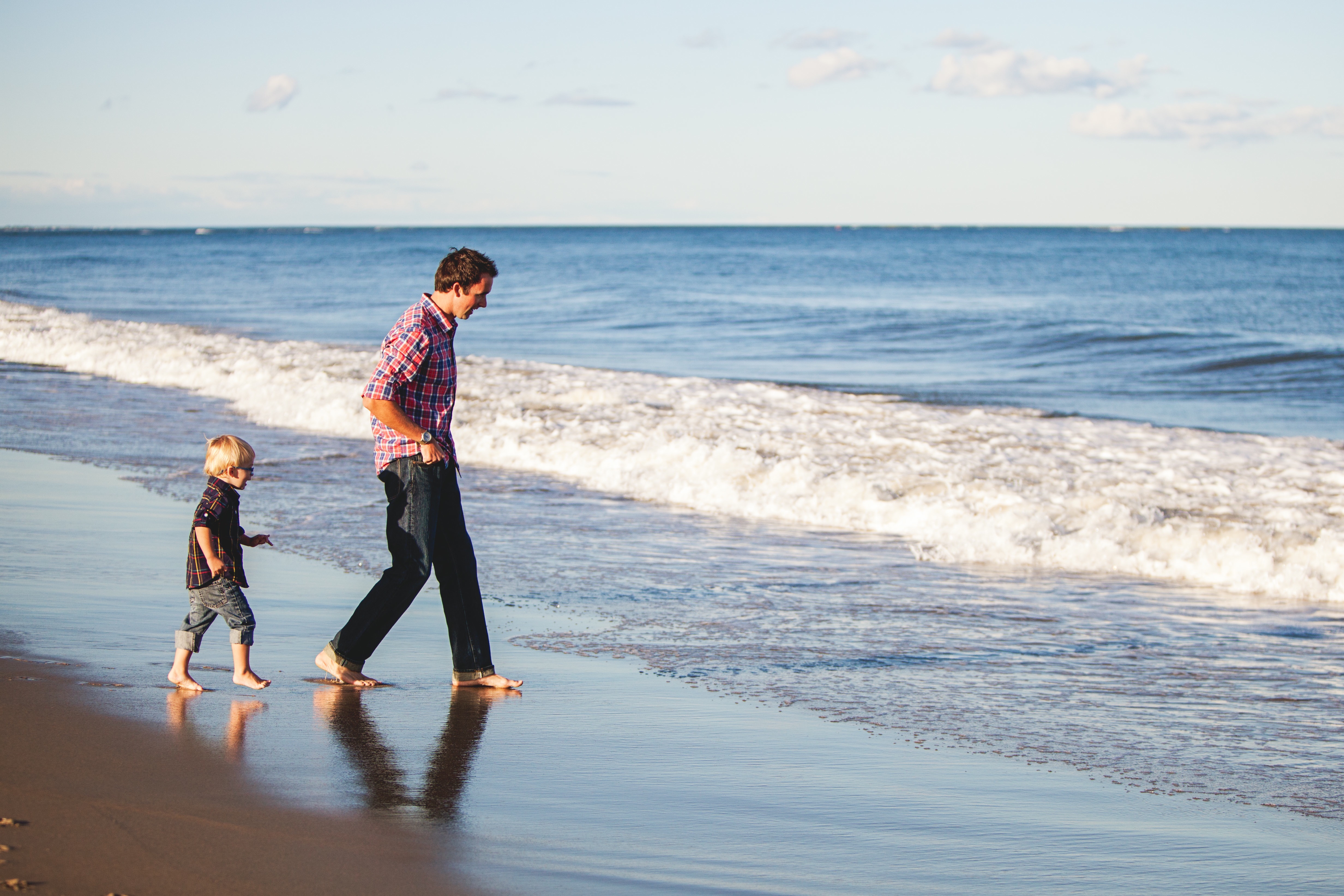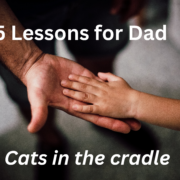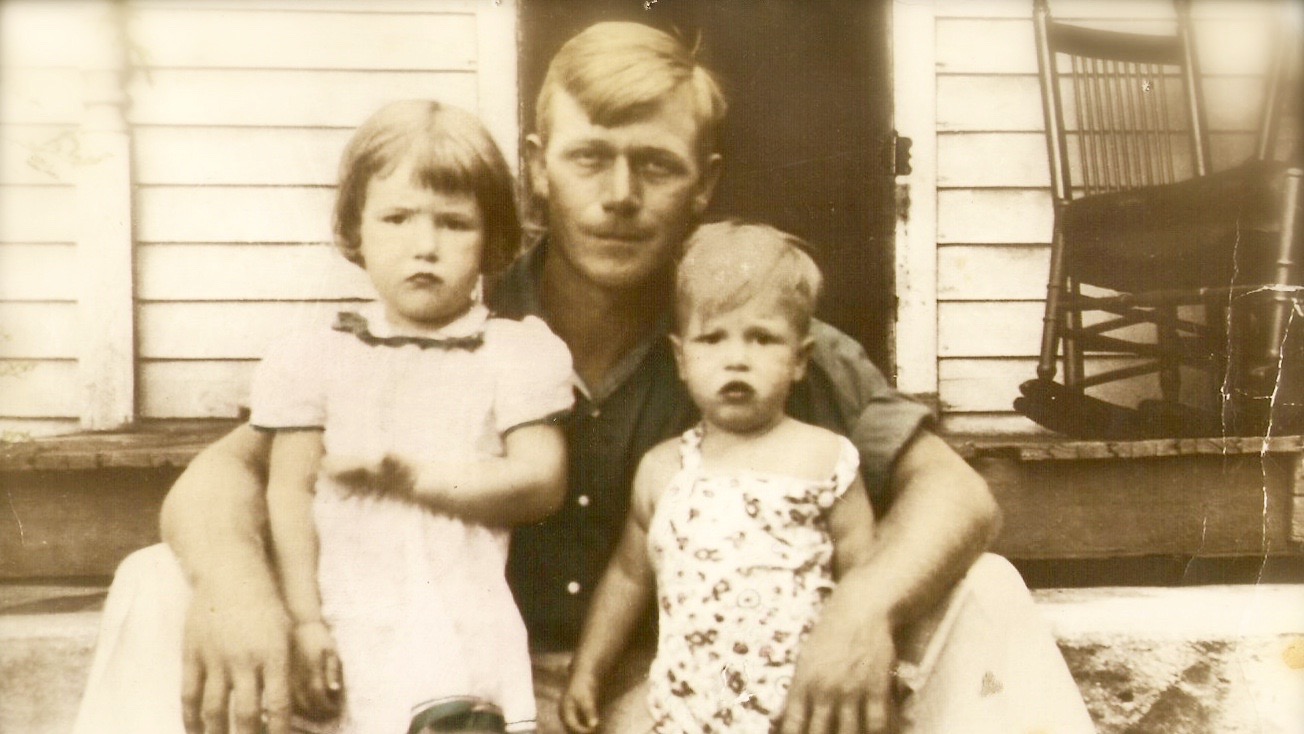Father’s Day–5 Things Dad Should Know
I cried when I read the words my uncle Ken recently wrote as the foreword to my soon to be published e-book, Relationship Dignity Manifesto. It seemed the message became deeper as I read his account of my dad who died at the young age of 28. Many Father’s Days have come and gone since my early childhood grief. I dedicate this post in memory of William C. Welch, my dad.
Baby Boomers Remember
Many of us Baby Boomers can still sing the words to Harry Chapin’s song, The Cats in the Cradle. A Nissan commercial debuted during Super Bowl in 2015 combined the 1974 classic with a series of short video images resurrecting deep emotions for those of us tuned in.
Attention grabbing images show the joyful birth of a newborn son growing through stages of childhood and adolescence. Moody teenager, absent dad, worried mom, and dad’s accident on the racetrack fit the lyrics. The little boy is left wondering when his dad is coming home. Dad kept promising later.
All ends well in ninety seconds with the connection of a loving dad and understanding son smiling at each other driving off in a new Nissan.
The messages portrayed are: Life is valuable. Relationships are resilient. Teenagers understand. New Nissans satisfy and are safe. Yes, we can connect with those messages. . . or can we?
Generational Patterns
Chapin’s lyrics express regret of an older dad who missed out on the seasons of his young son’s life. Business trips and career-building were stronger messages than the ten year-old’s voice, who thanked his dad for the ball and asked him to play. Dad responded again, with another excuse. He had other things to do.
Dads who parent well, take the time to tune into the lives and emotions of their sons and daughters. They are able to put their smaller agendas aside. They are able to see a larger perspective. They are not only raising small children and moody teenagers; they are raising future husbands and wives; dads and moms.
Five things every dad needs to know.
Here are factors that give perspective for wise fathering.
1. Know your own history well. Admit and grieve your childhood gaps.
Take time to remember and make sense of your past. Be courageous to face the loss and pain of childhood. Unclaimed resentment, anger, and bitterness may have settled in your soul like a clogged up drain. Feel what needs to be felt. Forgive what needs to be forgiven. Move past the residue of the past. Put it in it’s proper meaning and place.
2. Be aware of generational patterns in your family tree.
Rather than criticizing extended family members, take time to hear their stories. Examine the positive and negative traits passed down from your relatives. Be willing to own both your strengths and weaknesses. Be intentional about growing your character beyond what was passed onto you
3. Look for dads whose parenting you admire.
We find what we look for. Be intentional about looking for role models; those who have raised their sons and daughters well. Look for those who have close connection and understanding with their teenagers or adult children. Spend time with these dads. Ask questions. Be vulnerable with them.
4. Respect the opinions of your children’s mother.
Keep in mind that mothers know and feel connections with their children. Many are natural at tuning into their needs. Talk through differences. Partner with your children’s mother. Seek outside counseling rather than settle into chronic disagreements. Protect your children from the insecurity of troubled parenting.
5. Respect the otherness of your children.
Children are are separate people, worthy of love, respect, and belonging. They are not objects to be controlled. They are not little versions of their parents. Tune into their hearts and their needs.
I thank Nissan for getting our attention. Perhaps they’ve sold many cars through their commercial. They have sold me on the opportunity to encourage dads to parent their sons and daughters well.
Questions to ponder
How aware are you of your personal history?
What generational traits have been passed down to you?
Who are your role models?
How has this post touched you?








